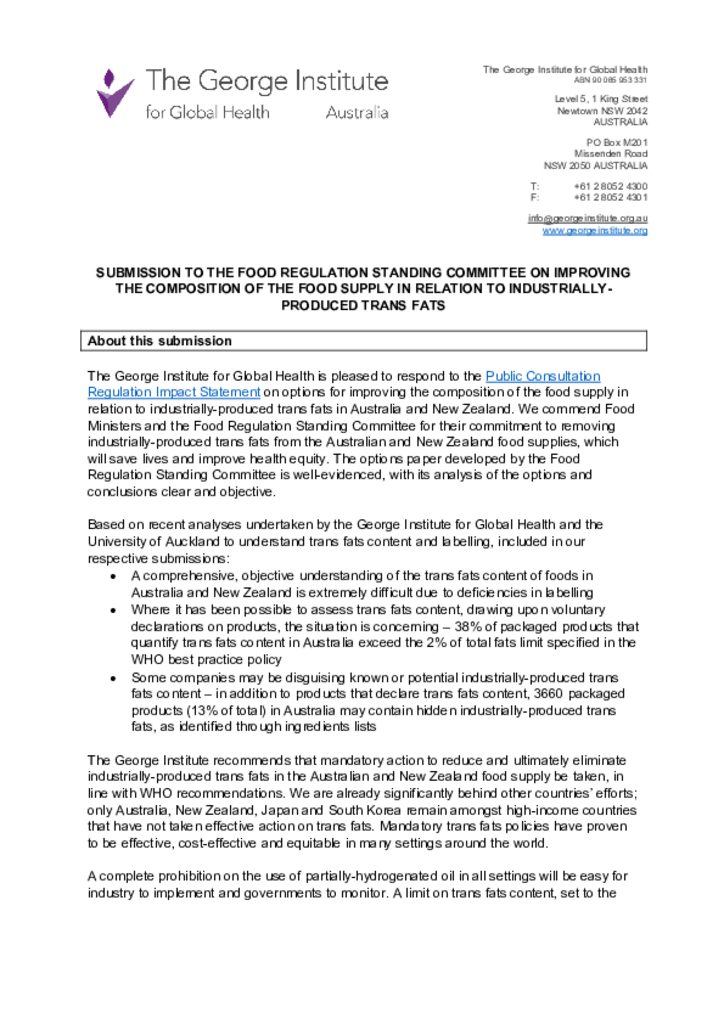
Submission on options for improving the composition of the food supply in relation to industrially-produced trans fats in Australia and New Zealand
The George Institute for Global Health has responded to the Public Consultation Regulation Impact Statement on options for improving the composition of the food supply in relation to industrially-produced trans fats in Australia and New Zealand. Food Ministers and the Food Regulation Standing Committee should be commended for their commitment to removing industrially-produced trans fats from the Australian and New Zealand food supplies, which will save lives and improve health equity.
- A comprehensive, objective understanding of the trans fats content of foods in Australia and New Zealand is extremely difficult due to deficiencies in labelling
- Where it has been possible to assess trans fats content, drawing upon voluntary declarations on products, the situation is concerning – 38% of packaged products that quantify trans fats content in Australia exceed the 2% of total fats limit specified in the WHO best practice policy
- Some companies may be disguising known or potential industrially-produced trans fats content – in addition to products that declare trans fats content, 3660 packaged products (13% of total) in Australia may contain hidden industrially-produced trans fats, as identified through ingredients lists
The George Institute recommends that mandatory action to reduce and ultimately eliminate industrially-produced trans fats in the Australian and New Zealand food supply be taken. Mandatory trans fats policies have proven to be effective, cost-effective and equitable in many settings around the world.
A complete prohibition on the use of partially-hydrogenated oil in all settings will be easy for industry to implement and governments to monitor. A limit on trans fats content, set to the WHO-recommended level of 2% of total fats content, is a suitable backup but will be more difficult to implement and evaluate. Voluntary reformulation options will not be effective and cannot be supported.
“We welcome the sound, well-evidenced analysis and conclusions in the options paper released by the Food Regulation Standing Committee. Effective action on toxic trans fats in Australia and New Zealand should now be within reach, bringing us in line with almost every other high-income country around the world,” said Damian Maganja, Research Associate and PhD Candidate in the Food Policy Division at The George Institute. “This will protect the community from harm while supporting the export capacity and reputation of our domestic food industry. We must remain alert, however, to the possibility of denials and delays by those who wish to continue to profit from the manufacture, promotion and sale of harmful products.”



